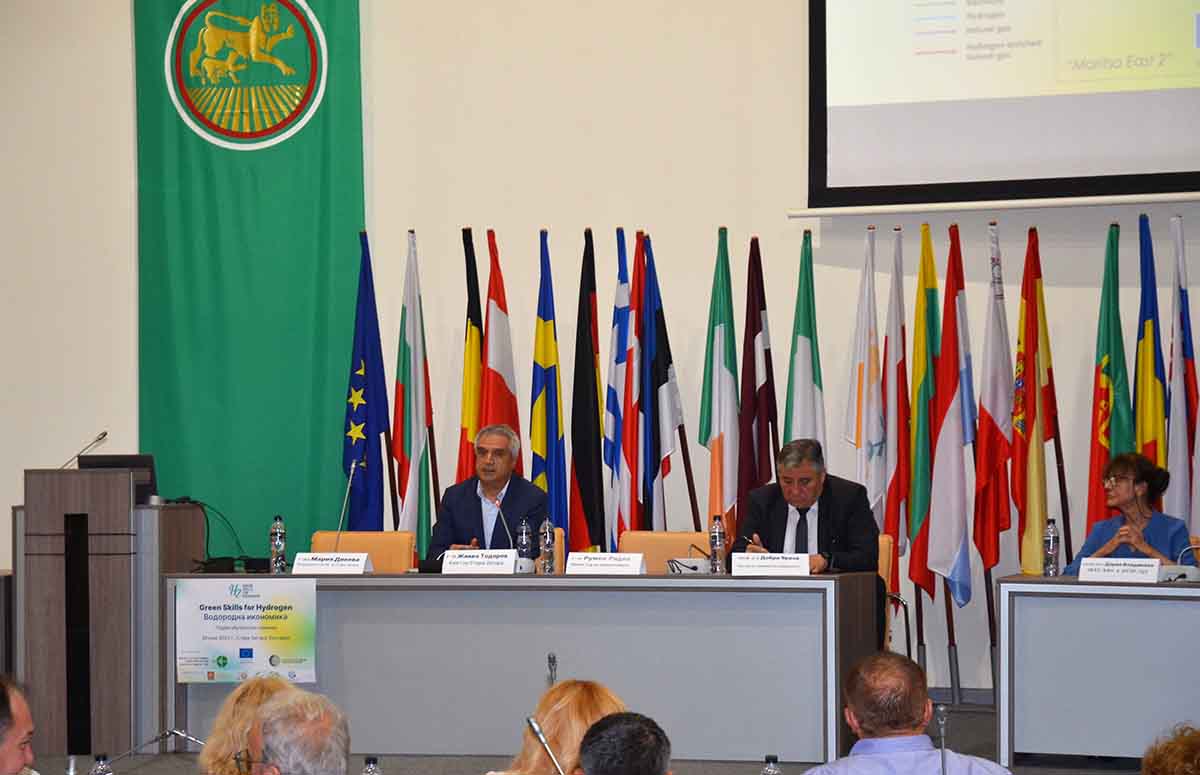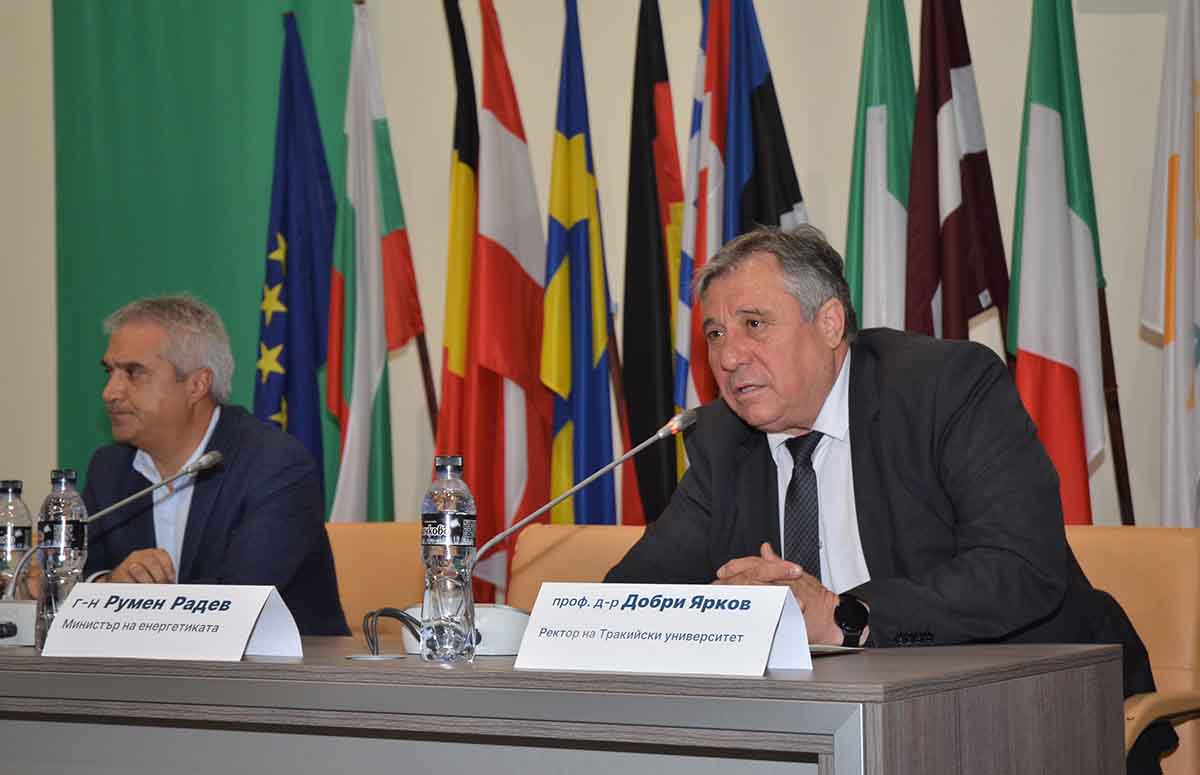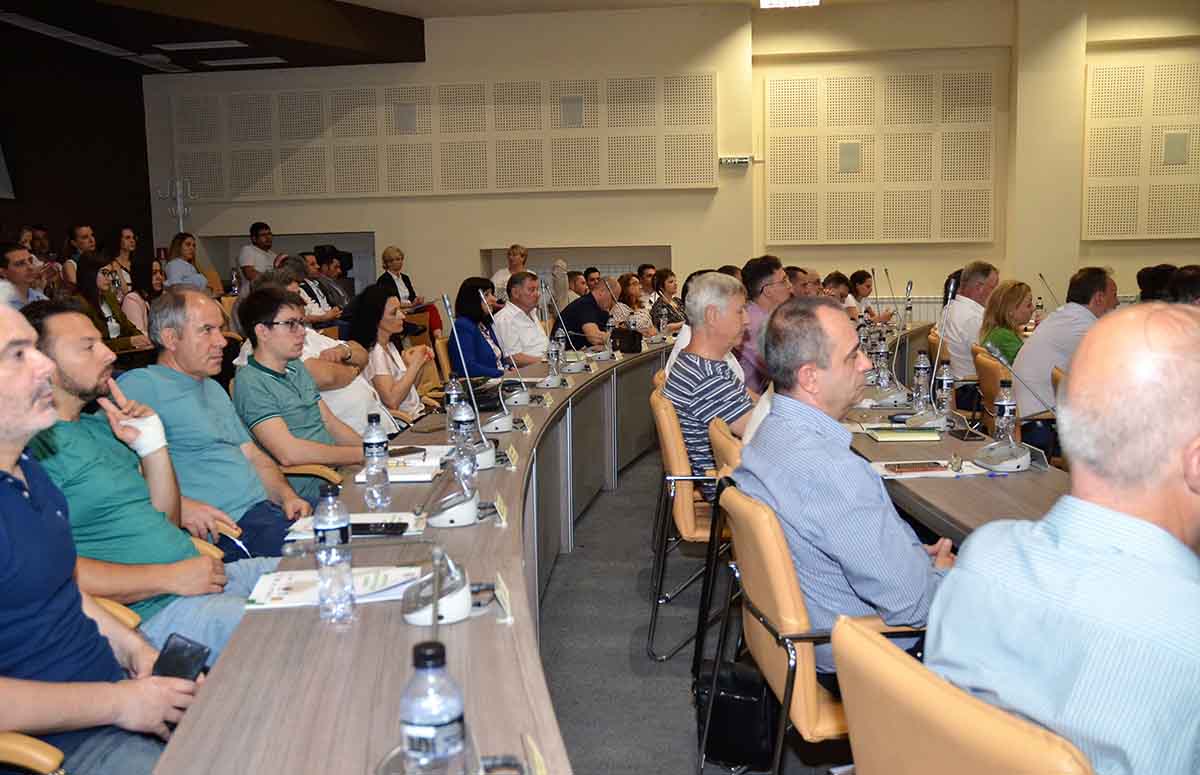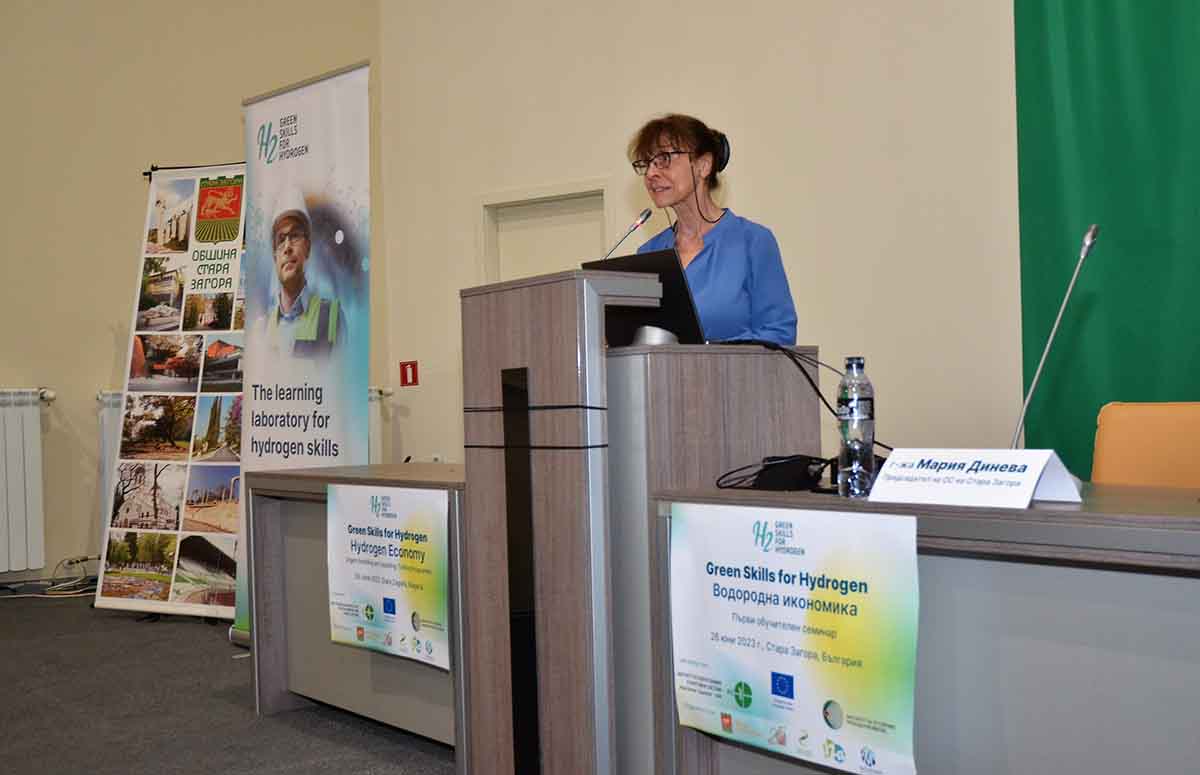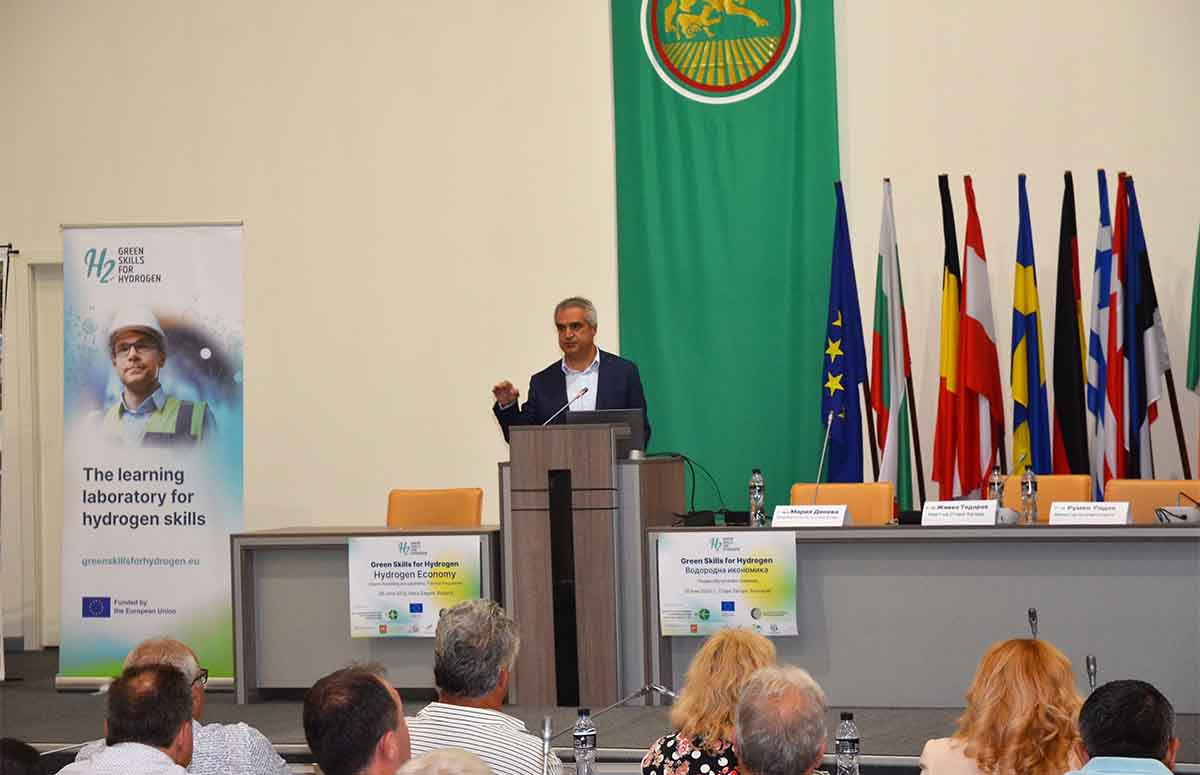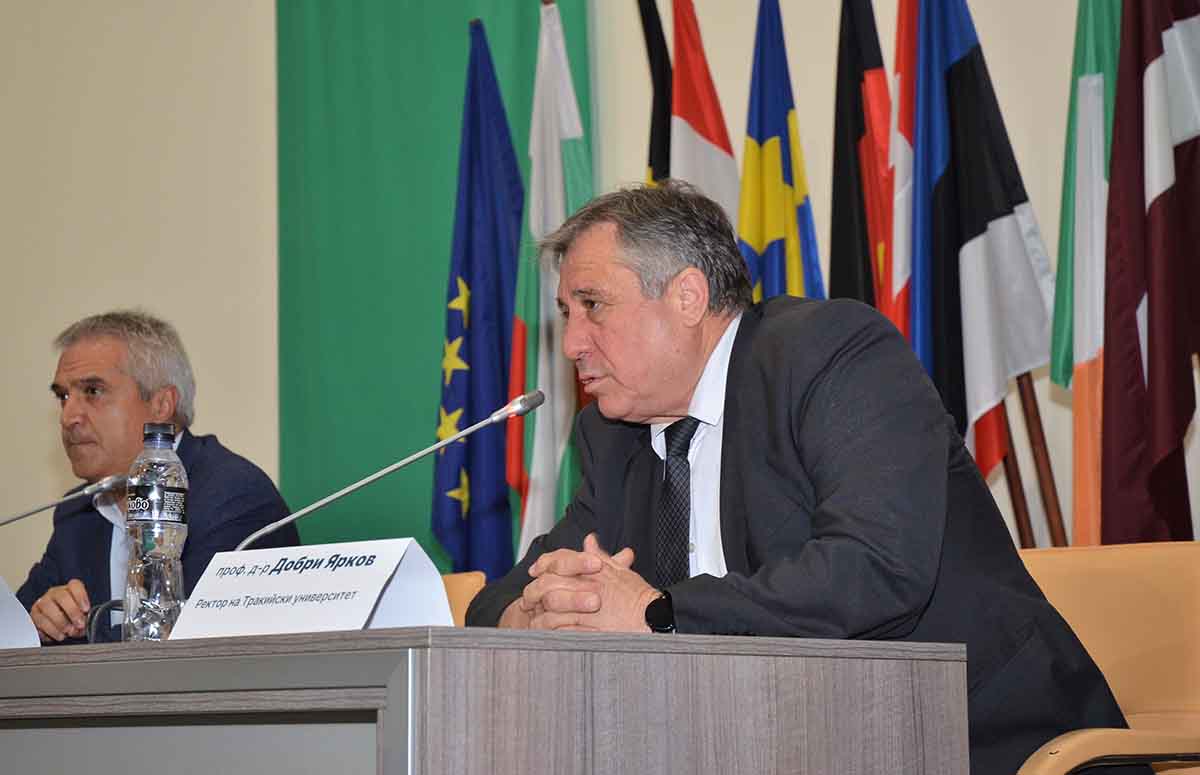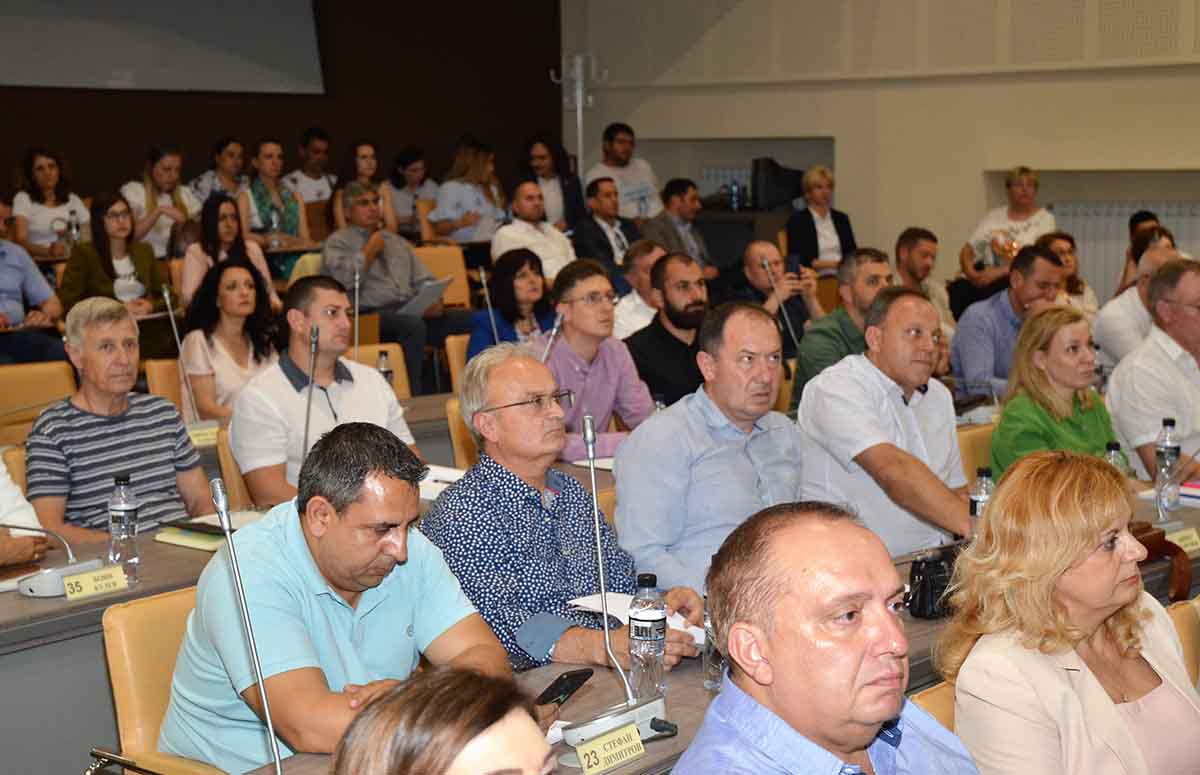At present, various industries are using large amounts of hydrogen, produced mainly from a natural gas called "grey" hydrogen. Hydrogen, obtained from renewable energy sources, such as wind and solar power, is "green" hydrogen - the key pillar of the European Green Deal for reducing greenhouse emissions.
The Institute for Sustainable Transition and Development at Trakia University, together with the Institute of Electrochemistry and Energy Systems "Acad. Evgeni Budevski" at BAS have organized the first training seminar on Hydrogen Economy in Stara Zagora under project “Green Skills for Hydrogen”. This project is funded under the Erasmus+ program and brings together academia, business, non-governmental organizations and institutions with the ambitious goal of presenting the prospects of the hydrogen economy and the possibilities for transforming the regional business model.
The seminar was attended by the Minister of Energy Rumen Radev, a member of the Management Board of the Institute for Sustainable Transition and Development, part of the consortium engaged in:
- developing an innovative and sustainable strategy for building knowledge and skills for hydrogen and hydrogen economy;
- designing, testing and introduction of curricula in higher education;
- preparing qualification and retraining programs in accordance with the latest market needs;
- providing career development that combines technical professionalism with green and digital competencies.
Prof. Dr. Dobri Yarkov, Rector of Trakia University, emphasized the global importance of the project for achieving the ambitious European goals in the field of climate change management and for the smooth implementation of the strategic roadmap for hydrogen defined by the European Commission. Minister Rumen Radev focused on the importance of the Water Valley project (ZAHYR), which could combine the resources and competencies of key stakeholders from Stara Zagora region. The use of two electrolysers is expected to create a total combined installed capacity for various transport and other energy applications. Assoc. Prof. Dr. Blagoy Burdin from the Bulgarian Academy of Sciences and Prof. Dr. Daria Vladikova, representatives of BAS and IUPR - TrU, explained the European policies for the introduction of hydrogen economy, the potential and realization of hydrogen technologies in Bulgaria.
Of the 1 million jobs planned by 2030, nearly 500,000 will be generated in the sector related to the construction of infrastructure, production and distribution of hydrogen. Jobs in these fields will require skilled people with engineering abilities and/or technical know-how. An estimated 350,000 additional highly skilled professionals will be linked to innovative value-added solutions such as fuel cells, specialized components and end-use applications, such as the production of fuel cell-powered vehicles or the retrofitting of industrial heating equipment.
This seminar on Hydrogen Economy marks the beginning of the innovative implementation of hydrogen technologies, with the intention to train, qualify and retrain local employees in Bulgaria.
